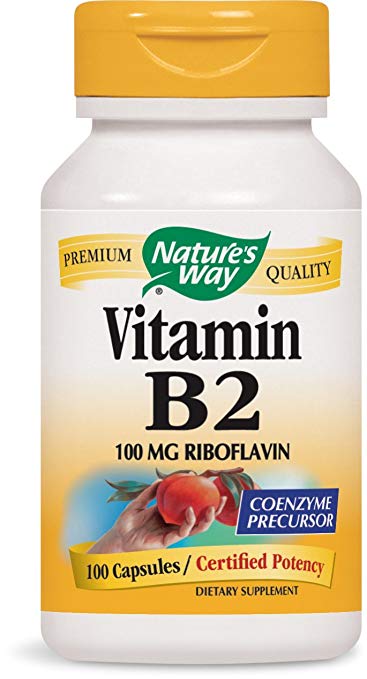
noun Biochemistry.
- a vitamin B complex factor appearing as an orange-yellow, crystalline compound, C17H20N4O6, derived from ribose, essential for growth, found in milk, fresh meat, eggs, leafy vegetables, etc., or made synthetically, and used in enriching flour, in vitamin preparations, and in treating facial lesions.
noun
- a yellow water-soluble vitamin of the B complex that occurs in green vegetables, germinating seeds, and in milk, fish, egg yolk, liver, and kidney. It is essential for the carbohydrate metabolism of cells. It is used as a permitted food colour, yellow or orange-yellow (E101). Formula: C 17 H 20 N 4 O 6Also: vitamin B 2, lactoflavin
growth-promoting substance known as vitamin B2, 1935, from German Riboflavin (1935), from comb. form of ribose + flavin, from Latin flavus “yellow” (see blue (1)); so called from its color. Also sometimes known as lactoflavine, as it is found in milk.
n.
- An orange-yellow crystalline compound that is the principal growth-promoting factor in the vitamin B complex, naturally occurring in milk, leafy vegetables, fresh meat, and egg yolks.lactoflavin vitamin B2
- A water-soluble compound belonging to the vitamin B complex that is important in carbohydrate metabolism and the maintenance of mucous membranes. Riboflavin is found in milk, leafy vegetables, meat, and egg yolks. Also called vitamin B2. Chemical formula: C17H20N4O6.
 Liberal Dictionary English Dictionary
Liberal Dictionary English Dictionary